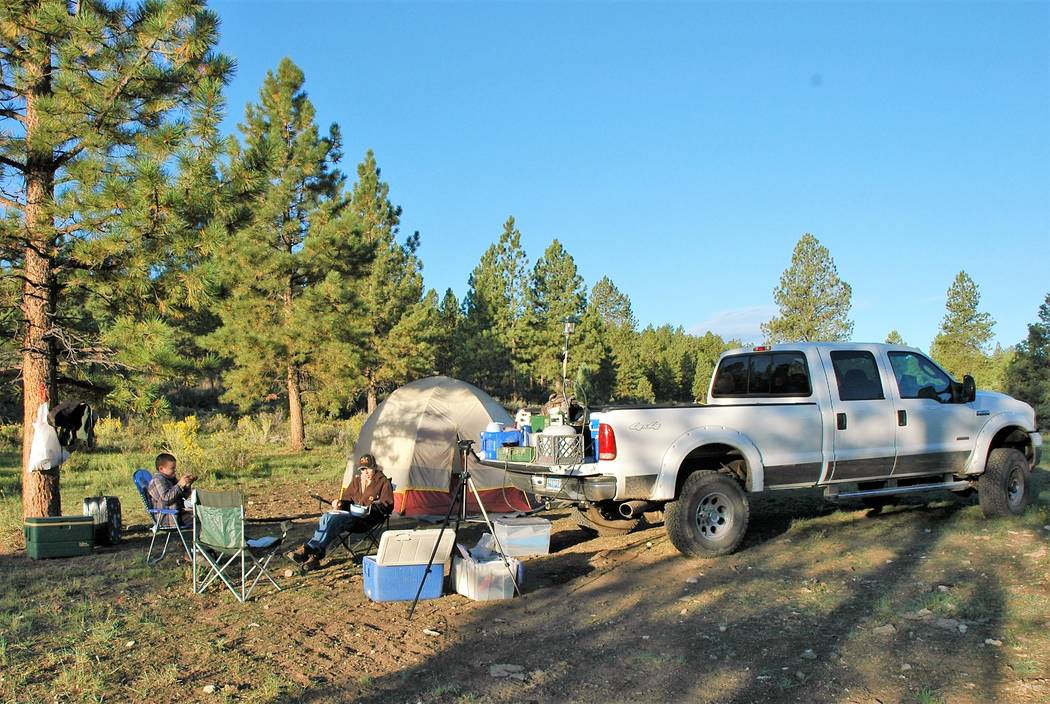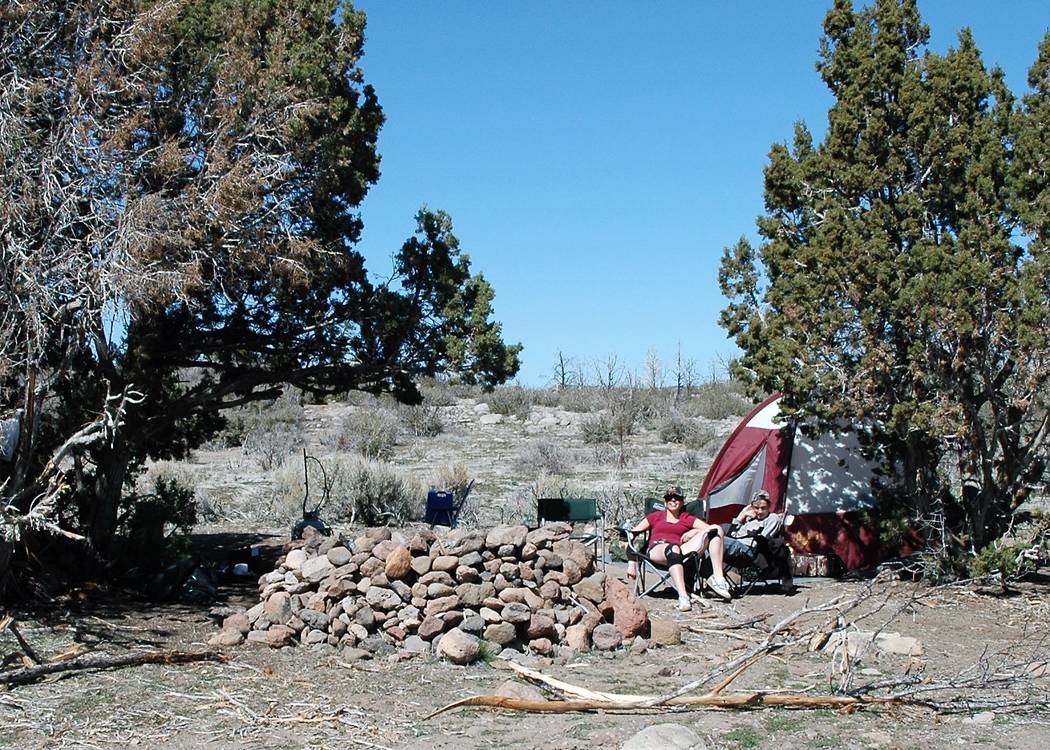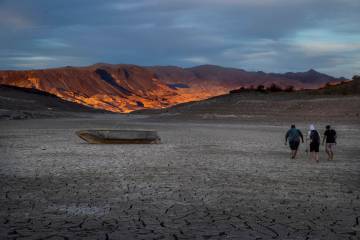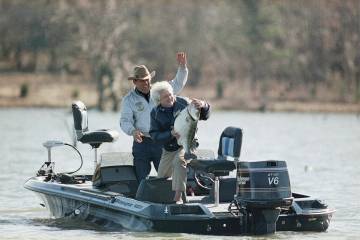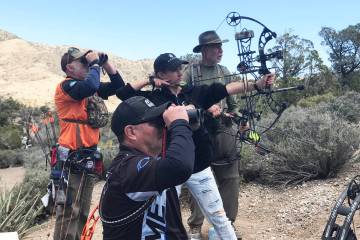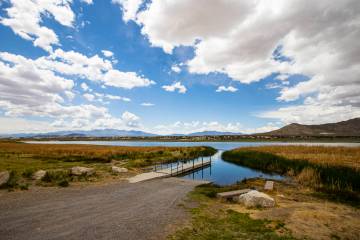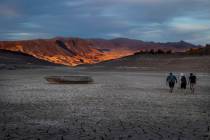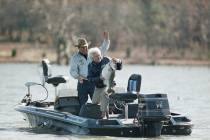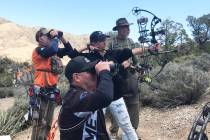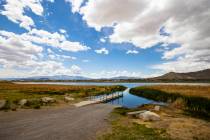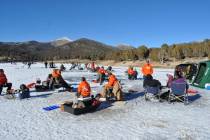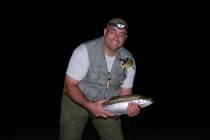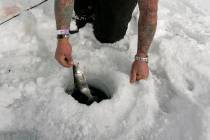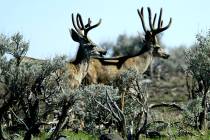Courtesy goes a long way among Southern Nevada campers
Memorial Day weekend marks the beginning of camping season for many Las Vegas area residents, and you can bet that by early Friday morning the roads will be packed with folks looking to escape the hustle and bustle of the city.
Some will make their way to campgrounds or the shoreline at Lake Mead or Lake Mohave. Some will take advantage of the handful of campgrounds in the Spring Mountain Range. Others will seek out rustic accommodations in rural areas of Nevada and Southern Utah.
One of the advantages of living in Southern Nevada is that we have access to outdoor venues in our neighboring states. However, as the population in Southern Nevada soars, so too have our impacts on the natural resources within a few hours drive of Las Vegas.
Those impacts include damage to trails and campgrounds, water quality issues, litter and wildland fires among others. Unfortunately, there are always those whose behavior makes enjoying the outdoors difficult for their campground neighbors.
To limit our negative impacts on the resource and other outdoor enthusiasts, “The Leave No Trace Center for Outdoor Ethics” recommends that we follow seven principles:
Plan ahead and prepare; camp on durable surfaces; dispose of waste properly; leave what you find; minimize campfire impacts; respect wildlife; and be considerate of other visitors.
Each of these seven principles is important, but I have a fondness for the first and last on the list.
Planning and preparation will go a long way toward making sure you return home with everyone in your party. It is an unfortunate fact that during the summer camping season some will end up in a hospital emergency room, and others won’t come home at all.
However, something as simple as creating a trip plan and leaving it with a responsible adult can and has saved lives. Include a list of people who will join you on your adventure, a map showing your intended destinations, a description of the vehicles involved, and both your departure and estimated return dates and times.
If, for some reason you don’t return as planned, or if someone at home needs to find you, responders will no where to begin their search. If followed, a trip plan can be a real lifesaver.
Another part of planning and preparation is making sure you have the gear and other supplies needed to safely enjoy and return from your outdoor adventure. This means you will need to know about the physical and environmental demands your destination will place on members of your group, as well as the abilities and limitations of those in your group.
At this point, let me put in a plug for paper copies of road and topographical maps of the area where you will be recreating. They don’t require batteries or satellites to function, which means they will always work for those who know how to read them. Technology can be a blessing when it works and a curse when it doesn’t.
Within the confines of a formal campground, and even where campers gather in primitive locations, a little camping courtesy goes a long way.
Most campgrounds have formal quiet hours with designated start and ending times such as 10 p.m. and 6 a.m. During these hours, talking should be done at low volume and music confined to something like a recreational vehicle. Even during the daytime, music should only be loud enough to be heard within the confines of your own camp. Believe it or not, your neighbors may not share your taste in music, and I have seen people come near to blows over music conflicts.
Another source of unwanted campground noise are generators. There are few things as annoying as trying to sleep in a tent when the RV generator in the camping spot next door is running all night.
Though they have no walls or fences, the informal boundaries of camping spots are easily recognized and should be respected. Cutting through the campsite of another is considered rude. Think of a campsite as a home away from home.
And before you leave, take time to police up your campsite and dispose of your trash. Imagine how enjoyable camping can be if we all leave our campsites better than we find them.
Freelance writer Doug Nielsen is a conservation educator for the Nevada Department of Wildlife. His “In the Outdoors” column, published Thursday, is not affiliated with or endorsed by the NDOW. Any opinions he states in his column are his own. Find him on Facebook at @dougwritesoutdoors. He can be reached at intheoutdoorslv@gmail.com



